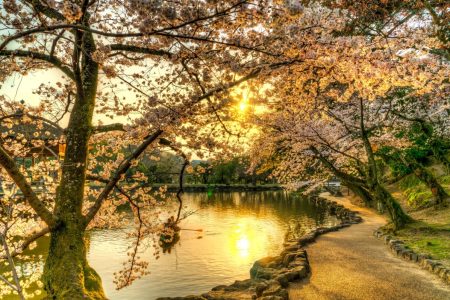The ancient Japanese were fortunate. They could “leave the world.” We can, too, and some of us do, but it’s seen as defeat rather than victory; aberration, not religious awakening. Even to the ancients it was sad, of course — the shaved heads, the drab monkish or nunnish garb — but life itself was sad; what foolishness to clothe it in gaiety. Severance effected, the enlightened ones retreated to the mountains, to the woods, the less hardy to a garden, and there, in little lean-tos, prototypes of the later tea huts, they fed on roots and berries and “lost themselves in prayer.”
Why, though? Such a beautiful world it was, for all its sadness, and beautiful they deeply felt it to be, with its blossoms, songbirds, chirping crickets, mountain mists, radiant moonlight — and these were cultivated people, high-born, gently nurtured, their emotional response to natural beauty itself beautiful, expressed in music, poetry, love, alcoholic intoxication — why not? A poem in the eighth-century anthology “Manyoshu” reads, “Even a treasure priceless in the world — / how could it surpass / a cup of sake?” And another: “Among the countless ways of pleasure / what refreshes most / is weeping drunken tears!”
“Leaving the world” meant leaving all this, not under duress but of one’s own free will, in favor of cheerless Buddhist austerities. Why?

